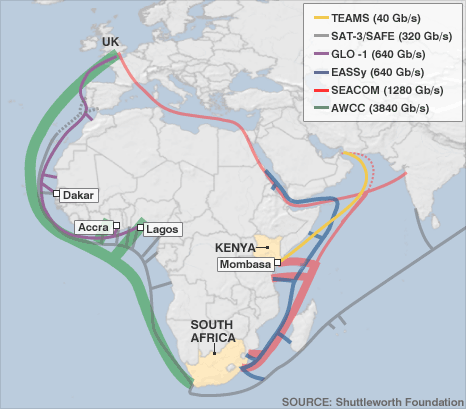
Communications and Information Technology Minister Hon. Steven Joyce
New Zealand, long ranked near the bottom of the barrel in broadband according to OECD rankings, will embark on a $1.5 billion (NZD) national broadband initiative, with a publicly-owned fiber network as its hallmark.
The plan, which will give urban and suburban New Zealand residents access to speeds faster than commonly available in the United States, will reach three-quarters of the population within the next ten years. New Zealand has discarded the “wait around for the private sector” approach, which has left the country with stiflingly slow and heavily capped broadband at high prices. Instead, it will create an open access fiber optic network on which private providers can compete and offer consumers the speeds they desire. Communications and Information Technology Minister Steven Joyce issued a statement explaining why the government was getting involved:
Private sector companies have decided, on behalf of their shareholders and as a commercial decision, not to invest in a nationwide network of fibre-to-the-home at this point in time. The government understands this, and so wishes to assist and work with the private sector in improving the business case for ultra-fast broadband.
The government is also getting involved in order to encourage the provision of widespread open access dark fibre services, which will facilitate the best possible competition outcomes in emerging markets and encourage innovation in wholesale and retail services.
For residents in 33 communities across the country targeted for access to the new network, it cannot come soon enough. For many of them the most important issue, even beyond speed, is an end to what one Henderson resident called “the current crap called ‘data caps.'”
“The speed of the broadband is meaningless compared to the tiny data caps involved. On the current slow broadband, I use up my 50GB data cap 12-15 days into the month. Ultra fast broadband would only be useful with no data caps involved, because the existing broadband speed is twice as fast as the cap already,” Lucy in Auckland told the New Zealand Herald.
Rose in Glenfield agrees:
“We have a 20GB data cap that we chew through in about 10-14 days, and then we are stuck on 64kbps or we have to pay another $30 for another 20GB to get through the rest of the month. When are they going to address these kinds of issues,” she asks.
New Zealand has seen the impact of Internet Overcharging schemes for years. Providers originally introduced ‘data caps’ to reduce the usage on their networks, but have since relied on them, and consumption billing also as a way to collect revenue. Most residential customers endure usage caps of 20-50GB per month. After that, some providers dramatically reduce their connections to just above dial-up speed, while others have found new revenue by charging customers $2/GB or more in overlimit penalties and fees. Some offer additional usage allotments, but at high prices, such as $30 for 20GB of additional usage.
The result has been a dramatically lower adoption of broadband in New Zealand, and many don’t think it’s worth the money.
John Rutter in Howick suggests speed is secondary to dealing with the issue of loathed usage caps.
“I like the idea of a ultra-fast broadband investment initiative but I hope Internet service providers like Vodafone, Slingshot, and Orcon will provide unlimited Internet soon. Unlimited Internet should come first, then ultra-fast broadband,” he said.
The government has received public support for its broadband initiative. The public benefit is a much faster “public highway” on which private providers can offer service to individual customers. By constructing a fast pipeline publicly that no provider is willing to provide privately, it creates additional value for consumers who find faster, more reliable service, preferably on better terms.
“Already a number of companies have shown interest in the government’s broadband initiative,” Joyce said in a statement. “It’s time to get on with finding the right partners to build these networks.”
The government “is prepared to accept a less than commercial return” from the partners. It aims to hold less than 25 per cent in the partnered investment vehicles and will resist contributions of more than 50 per cent.
For rural New Zealand, the answer generally won’t come from a fiber-based strategy, Joyce says. Instead, the government estimates $300 million will be needed from public and private sources for a rural broadband plan. Significant portions of New Zealand are difficult to reach with traditional broadband networks, and many New Zealand residents in even medium sized outlying towns find themselves on long waiting lists for what service is available.
Steve in Wellington told the Herald “a lot of towns (like Richmond, Tasman and Rolleston – not just remote areas) have issues where due to lack of exchange space many people cannot get broadband or are on ‘port waiting lists’ waiting for ports to become available. I think the main issue should be ensuring access to broadband full stop. Not just faster for those lucky enough to already have it.”
Rural broadband through wireless is one initiative under consideration. WiMax technology can deliver fast broadband to rural area, often at faster speeds than traditional telephone company DSL in rural communities.


 Subscribe
Subscribe







